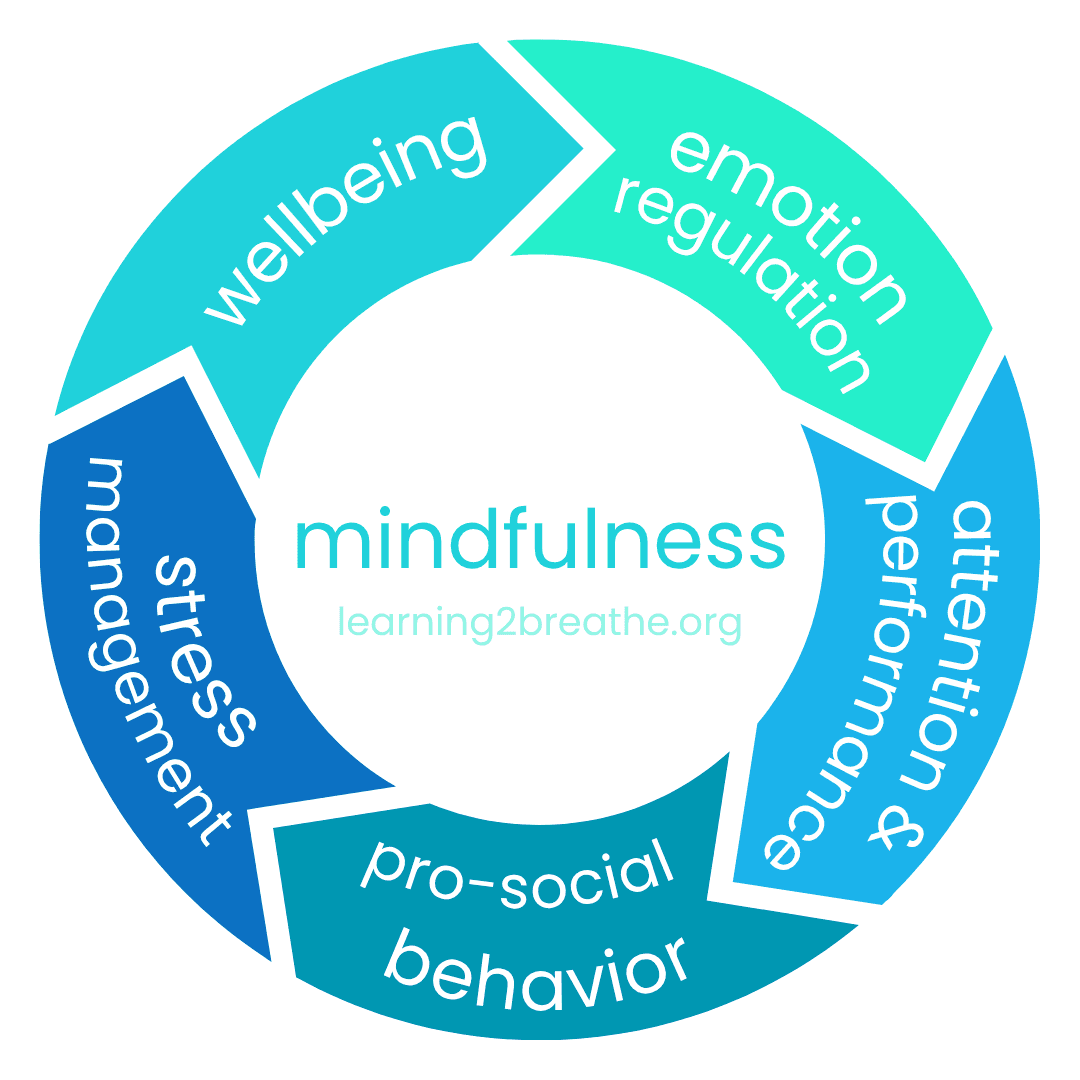Youth Prevention Education
RISE: Resilient Futures Through Mentorship, Art & Wellness Program
RISE is a combined school and community-based initiative aimed at empowering youth through evidence-based prevention curriculum, mentoring with a caring adult, expression of mental health challenges through expressive art and supportive parenting programs. There is an emphasis on reducing risk factors while increasing preventative factors for youth. The following are the strategies and definitions of programs and services:
· Learning to BREATHE (L2B) is a developmentally appropriate universal prevention program that can be integrated into educational, prevention or other settings and is compatible with school curricula. The program is designed to teach mindful awareness, increase emotion regulation, stress management, and executive functions in order to support well-being and learning. L2B is a mindfulness curriculum created for classroom or group settings. Mindfulness is the practice of becoming aware of one’s present-moment experience, both pleasant and unpleasant experience, with compassion and openness as a basis for discernment and wise action. Mindful awareness, as used in the curriculum, refers to the practice of training the mind to pay attention in a particular way: on purpose, in the present moment and with openness, curiosity and non-reactivity (Kabat-Zinn, 1994). Research on mindfulness suggest that this practice can impact student academic and behavioral outcomes by supporting the emotion regulation and attention that ultimately support learning and mental health.
· The INSPIRE Mentoring Program offers a curriculum focused on developing social and emotional learning (SEL) skills in middle and high school students, aiming to empower them to reach their potential. The curriculum emphasizes key areas like personal value, healthy relationships, respect, positive choices, emotional well-being, resilience, leadership, and social media safety.
· Expressive Art – PEACE LOVE (Mental Well-Being)
PeaceLove designs expressive arts programming that makes addressing mental health challenges easier, tapping into the cathartic benefits of creativity. Opportunities to be creative and spaces where people can safely express their emotions are challenging. Yet both of these things are crucial to the promotion of mental wellness. PeaceLove curriculum promotes the use of expressive arts to create emotional, psychological and social well-being and change conversations around mental illness and the stigma often associated with it. Staff are trained to use visual arts, storytelling, sound and movement curriculum to help individuals develop coping skills.
· Guiding Good Choices Parenting Classes
Guiding Good Choices is a five-session in-person or a six-session virtual program that teaches parents of children ages 9-14 (in general, grades 4-8) how to reduce the risk that their children will develop negative behavioral issues. It is based on research conducted by Dr. J. David Hawkins and Dr. Richard F. Catalano of the University of Washington. Through extensive review of over 30 years of research, they identified 20 factors that increase young people’s risk of developing problem behaviors – violence, delinquency, dropping out of school, and teen pregnancy.
There is clear evidence that the child-rearing practices, attitudes, values, and behaviors of parents influence whether their children will get involved in problematic behaviors. This evidence underlines the importance of involving parents in prevention. The curriculum is for all parents who want to strengthen family bonds and reduce the risk factors associated with negative behaviors in the teen years. The curriculum is appropriate for families of all races and ethnic backgrounds.
RISE Goals:
1) Reduce desires to be involved in negative behaviors among youth.
2) Reduce risk factors in youth.
3) Increase preventative factors in youth.
4) Educate parents on prevention strategies.
Youth Prevention Team
Student Testimonials
“This class taught me how to respect myself and how drugs can harm me.” Truman Middle School, Grand Prairie
"I really learned a lot from this class/session. I learned certain drugs that are harmful and I can say that it helped me to look forward to a bright future." Truman Middle School, Grand Prairie
"Thank you for teaching me the consequences of drugs, smoking and drinking. I appreciate you helping me and making me laugh." Truman Middle School, Grand Prairie
"I got to know myself better and understand what it means to have self-concept and the sessions we had were great. I feel like I understand others more and vice versa." School Community Guidance Center, Dallas
"I liked the environment overall when we were sharing our thoughts. It felt as if every response was closely examined and accepted." School Community Guidance Center, Dallas
Teacher/Faculty Testimonials
"The teacher excelled in helping students think about their future, and how the consequences of every decision they make will affect them."
"Teacher motivated the students to participate in class discussions which resulted in them making better decisions."


